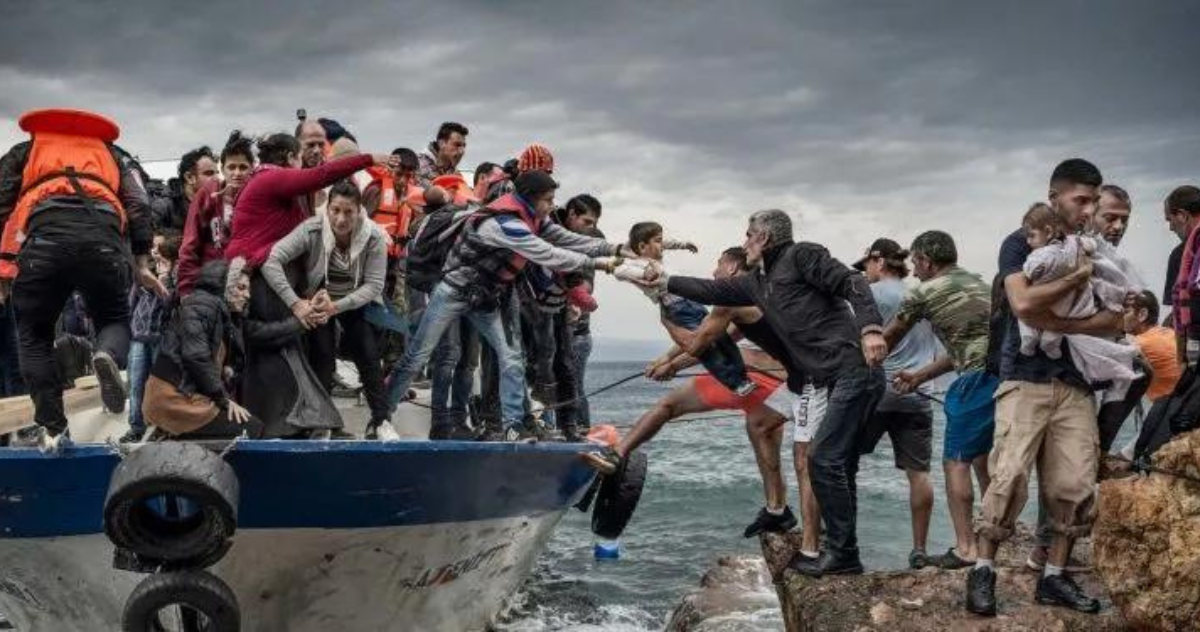EU (Parliament Politics Maganize) – In early 2023, the Prime Minister unveiled one of his five commitments, vowing to “halt the influx of small boats.” This pledge came in response to the pressing issue of 46,000 individuals crossing the English Channel aboard such vessels in 2022. Recognizing the political significance of this matter both among voters and within his own party, the Prime Minister has endeavored to tackle this migration challenge, notably through the Rwanda policy, the legality of which is pending a decision by the Supreme Court.
However, another facet of his strategy involves actively collaborating with EU member states and the European Commission, both through bilateral channels and within the framework of the European Political Community (EPC), with the aim of thwarting the entry of illegal migrants into the UK. With 10 months elapsing since the initiation of efforts to strengthen ties with the EU and European nations, the question arises: How effective has this strategy proven to be?
Engagement with the EU
In March, the Prime Minister initiated the first steps by engaging with President Macron during the ‘UK–France leaders’ summit.’ The outcome was a collaborative multi-year funding agreement, where the UK committed £476 million over three years. This funding was earmarked for the expansion of ‘law enforcement’ personnel in France, the acquisition of surveillance aircraft, and the establishment of a new retention center.
In return, France committed to establishing a ‘Zonal Coordination Initiative’ aimed at enhancing operational efficiency. Additionally, both nations agreed to sustain collaboration within the ‘Calais Group,’ which includes Belgium, France, Germany, the Netherlands, and the UK, with the Commission and the EU’s European Border and Coast Guard Agency (FRONTEX) also participating in these efforts.
Furthermore, the UK has endeavored to extend the collaborative approach established with France by initiating discussions with Italian Prime Minister Meloni on the same issue. In April, both leaders formalized their commitment by signing a Memorandum of Understanding (MOU).
This agreement underscores the imperative for increased cooperation, emphasizing the establishment of a ‘UK-Italy Migration Dialogue’ forum dedicated to addressing illegal migration, both bilaterally and within the European Political Community (EPC). Noteworthy is Italy’s acknowledgment of its responsibilities as an EU member, including processing asylum applications under Dublin III and collaborating with FRONTEX.
Sunak’s Interaction with the Commission Proves to Be Good
Sunak’s interaction with the Commission has proven notably more amicable compared to his two predecessors. The signing of the Windsor Framework played a pivotal role in alleviating tensions between the UK and the Commission. This improved rapport has empowered the Prime Minister to further enhance the relationship by actively collaborating with the Commission on migratory challenges.
Despite the Commission’s initial refusal to engage in discussions regarding an asylum returns agreement with the UK in March, recent developments indicate that both sides are nearing an accord on intelligence-sharing between FRONTEX and Border Force concerning Channel crossings. Such an agreement aligns with previous arrangements that FRONTEX has successfully negotiated with other third countries, including Albania.
With the establishment of the European Political Community (EPC), the Prime Minister has actively leveraged the forum to advocate for a more collective European approach to the migration issue.
During the second EPC summit in June, he committed the UK to being a central participant in the international endeavor to curb boat migration and safeguard national security. However, at the third EPC session in October, the Prime Minister encountered both opposition and support for addressing the matter within the forum.
How Well is Strategy Working?
The gathering included Albanian Prime Minister Edi Rama, Commission President Ursula von der Leyen, Dutch Prime Minister Mark Rutte, and French President Emmanuel Macron, showcasing a mix of both support and opposition within the EPC regarding the pursuit of this issue.
The challenges posed by Channel crossings, coupled with a more amicable relationship between the EU and the UK post-Windsor, have motivated the Prime Minister to intensify cooperation with the EU on a crucial issue for UK voters. However, it’s important to acknowledge the inherent limitations in what can be accomplished through engagement with the EU and the EPC.
One potential hurdle is the prospect of a burden-sharing agreement with the EU, which could entail the resettlement of hundreds of thousands of individuals in the UK or the government facing a financial obligation of €20,000 for each migrant it opts not to resettle.

